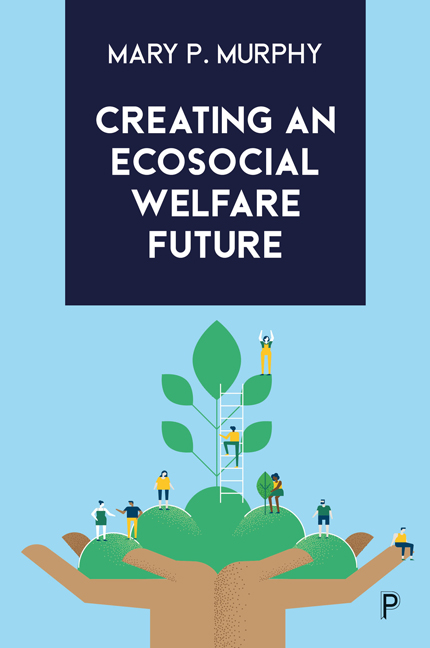Book contents
- Frontmatter
- Dedication
- Contents
- List of figures and tables
- Acknowledgements
- Introduction: The case for a welfare imagination
- PART I From problems to solutions: a post-growth ecosocial political economy
- PART II Building an ecosocial imaginary
- PART III An ecosocial political imaginary
- Conclusion: The case for systemic transformation
- Appendix: Ireland
- Notes
- References
- Index
3 - From an unequal society to ecosocial welfare
Published online by Cambridge University Press: 20 January 2024
- Frontmatter
- Dedication
- Contents
- List of figures and tables
- Acknowledgements
- Introduction: The case for a welfare imagination
- PART I From problems to solutions: a post-growth ecosocial political economy
- PART II Building an ecosocial imaginary
- PART III An ecosocial political imaginary
- Conclusion: The case for systemic transformation
- Appendix: Ireland
- Notes
- References
- Index
Summary
The contemporary global model of financialised capital not only leads to environmental destruction, loss of biodiversity and global warming but also, without doubt, leads to greater inequality (Piketty, 2014). The first part of this chapter focuses on inequality, itself unequally experienced across different groups in society and between nations. It explores how inequality intersects with the ecological crisis, increasing wants and fuelling consumption in the Global North, while leaving countries and people in the Global South vulnerable to poverty and ill-equipped to meet the challenges that climate change is already presenting. This is particularly true for women and girls who bear the worst impacts of both inequality and climate change. The second part of the chapter discusses tensions at the heart of welfare policy in the Global North. A less conditional and more enabling and flourishing form of careful social policy is needed to resource the scale of active citizenship required in an ecosocial state. The challenge is to redistribute and support work, income, time and democratic participation in a post-growth society and economy. The chapter concludes by reviewing the state of inequality and wellbeing in Irish society.
Social inequality
Inequality
The Oxfam Inequality Report is launched annually to coincide with the opening of the World Economic Forum summit in Davos, Switzerland, an annual gathering of the rich and influential. The contrast works. The Inequality Reports have become an important annual statement. Sobering statistics and memorable frames and images are used to illustrate the degree to which wealth is increasingly concentrated. The 2022 report highlighted how a new billionaire emerged every 30 hours during the COVID-19 pandemic, the same time it took nearly a million to fall into extreme poverty. There were 573 more billionaires in the world by March 2022 than in 2020, while a million people every 33 hours were pushed into extreme levels of poverty, 263 million people in 2022, because of the pandemic, growing global inequality and rising food and energy prices that have been exacerbated by the war in Ukraine. These Oxfam reports work as an excellent example of framing, discussed in Chapter 8.
- Type
- Chapter
- Information
- Creating an Ecosocial Welfare Future , pp. 43 - 58Publisher: Bristol University PressPrint publication year: 2023



